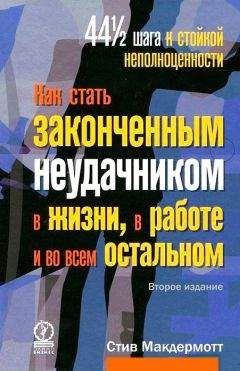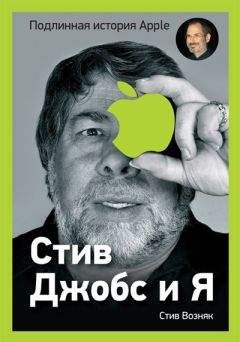Михаил Сарапов - Английский для смелых. Истории о духах и привидениях / Great Ghost Stories
The seats and the post were cleared away and uprooted respectively by that evening. Late summer weather is proverbially treacherous, and during dinner-time Mrs Collins sent up to ask for a little brandy, because her husband had took a nasty chill and she was afraid he would not be able to do much next day.
Mrs Anstruther’s morning reflections were not wholly placid. She was sure some roughs had got into the plantation during the night. ‘And another thing, George: the moment that Collins is about again, you must tell him to do something about the owls. I never heard anything like them, and I’m positive one came and perched somewhere just outside our window. If it had come in I should have been out of my wits: it must have been a very large bird, from its voice. Didn’t you hear it? No, of course not, you were sound asleep as usual. Still, I must say, George, you don’t look as if your night had done you much good.’
‘My dear, I feel as if another of the same would turn me silly (моя дорогая, я чувствую, что еще одна такая ночь: «словно другая /ночь/ такого же /типа/» сведет меня с ума; to turn – поворачивать; менять; превращать, обращать; silly – слабоумный, придурковатый; to turn silly – сводить с ума). You have no idea of the dreams I had (ты и представить не можешь: «не имеешь представления», что за сны мне снились). I couldn’t speak of them when I woke up (когда я проснулся, я просто говорить о них не мог), and if this room wasn’t so bright and sunny I shouldn’t care to think of them even now (и если бы эта комната не была такой светлой и солнечной, я бы и сейчас поостерегся о них думать; bright – яркий; блестящий; светящийся; to care – беспокоиться, тревожиться; иметь желание; even – даже).’
‘Well, really, George, that isn’t very common with you, I must say (ну, в самом деле, Джордж, это не очень-то похоже на тебя, должна я сказать; common – общий, всеобщий; частый, обыкновенный; обычный). You must have – no, you only had what I had yesterday (ты, должно быть… нет, ты ел то же, что и я; to have + сущ. – принимать /пищу/) – unless you had tea at that wretched club house; did you (если только ты не ел в этом твоем ужасном клубе; поел ведь; tea = afternoon tea – послеполуденный чай, чай с закуской из сэндвичей, пирожных, печенья и т. д.; wretched – бедный, несчастный; плохой, жалкий, /разг./ никудышный; ужасный)?’
‘No, no; nothing but a cup of tea and some bread and butter (нет, нет; ничего, кроме чашки чая и бутерброда; bread – хлеб; butter – масло; bread and butter – хлеб с маслом, бутерброд, сэндвич). I should really like to know how I came to put my dream together (мне бы в самом деле хотелось знать, как у меня сложился такой сон; to put together – соединять; компилировать; собирать) – as I suppose one does put one’s dreams together from a lot of little things one has been seeing or reading (так как я полагаю, что сон складывается из кучи мелочей – увиденного и прочитанного; a lot of smth. – много, множество чего-либо). Look here, Mary, it was like this – if I shan’t be boring you (слушай, Мэри, это было так – если только тебе не скучно слушать: «если я не буду докучать тебе»; to bore – докучать, донимать, надоедать) —’
‘My dear, I feel as if another of the same would turn me silly. You have no idea of the dreams I had. I couldn’t speak of them when I woke up, and if this room wasn’t so bright and sunny I shouldn’t care to think of them even now.’
‘Well, really, George, that isn’t very common with you, I must say. You must have – no, you only had what I had yesterday – unless you had tea at that wretched club house; did you?’
‘No, no; nothing but a cup of tea and some bread and butter. I should really like to know how I came to put my dream together – as I suppose one does put one’s dreams together from a lot of little things one has been seeing or reading. Look here, Mary, it was like this – if I shan’t be boring you —’
‘I wish to hear what it was, George (я хочу услышать, что это такое было, Джордж). I will tell you when I have had enough (я скажу тебе, когда мне надоест: «когда я получила достаточно»).’
‘All right (хорошо). I must tell you that it wasn’t like other nightmares in one way (должен сказать тебе, что в одном отношении это не было как прочие кошмары), because I didn’t really see any one who spoke to me or touched me (потому что я вообще-то не видел никого, кто говорил бы со мной или прикасался ко мне), and yet I was most fearfully impressed with the reality of it all (и все же я был ужасно поражен тем, насколько все было реально; reality – реализм; реалистичность). First I was sitting, no, moving about, in an old-fashioned sort of panelled room (сначала я сидел, нет, расхаживал по комнате со старомодной обшивкой стен; to move – двигаться, передвигаться, перемещаться; sort – сорт, вид, разновидность; to panel – обшивать панелями, филенками). I remember there was a fireplace and a lot of burnt papers in it (я помню, что там был камин, а в нем множество сожженных бумаг; to burn), and I was in a great state of anxiety about something (и я был чем-то очень обеспокоен: «в великом состоянии беспокойства о чем-то»). There was some one else – a servant, I suppose, because I remember saying to him (там был кто-то еще, слуга, я полагаю, потому что я помню, как сказал ему), “Horses, as quick as you can (лошадей, как можно быстрее),” and then waiting a bit (затем мне пришлось подождать немного); and next I heard several people coming upstairs and a noise like spurs on a boarded floor (затем я услышал, как несколько человек поднимались вверх по лестнице с таким шумом, словно шпоры гремели по дощатому полу; to board – заколачивать досками; настилать /пол/; board – доска; планка), and then the door opened and whatever it was that I was expecting happened (затем дверь распахнулась и случилось то, чего я ждал – что бы это ни было).’
‘Yes, but what was that (да, но что это было)?’
‘I wish to hear what it was, George. I will tell you when I have had enough.’
‘All right. I must tell you that it wasn’t like other nightmares in one way, because I didn’t really see any one who spoke to me or touched me, and yet I was most fearfully impressed with the reality of it all. First I was sitting, no, moving about, in an old-fashioned sort of panelled room. I remember there was a fireplace and a lot of burnt papers in it, and I was in a great state of anxiety about something. There was some one else – a servant, I suppose, because I remember saying to him, “Horses, as quick as you can,” and then waiting a bit; and next I heard several people coming upstairs and a noise like spurs on a boarded floor, and then the door opened and whatever it was that I was expecting happened.’
‘Yes, but what was that?’
‘You see, I couldn’t tell (видишь ли, я не могу сказать): it was the sort of shock that upsets you in a dream (это был такой шок, что случается во сне; to upset – расстраивать, огорчать). You either wake up or else everything goes black (ты либо просыпаешься, либо этот сон заканчивается: «или все чернеет»). That was what happened to me (это со мною и случилось). Then I was in a big dark-walled room, panelled, I think, like the other (затем я оказался в большой комнате с темными стенами, обшитой деревом, я думаю, как и та), and a number of people, and I was evidently (там тоже было множество народа, и меня, видимо) —’
‘Standing your trial, I suppose, George (судили, я полагаю, Джордж; to stand – стоять; trial – суд; to stand one’s trial – быть под судом).’
‘Goodness! yes, Mary, I was (Боже, да, Мэри, так и было); but did you dream that too (тебе что, тоже приснился этот сон)? How very odd (как странно)!’
‘No, no; I didn’t get enough sleep for that (нет, нет; мне не удалось поспать достаточно: «я не получила достаточно сна» для этого). Go on, George, and I will tell you afterwards (продолжай, Джордж, я тебе потом расскажу).’
‘Yes; well, I was being tried, for my life, I’ve no doubt (да; ну, меня судили, и я не сомневаюсь, что мне угрожал смертельный приговор; to try – зд.: судить; привлекать к судебной ответственности; life – жизнь; to try for one’s life – судить по статье, предусматривающей высшую меру наказания), from the state I was in (судя по тому, как со мной обращались: «судя по тому состоянию, в котором я находился»). I had no one speaking for me (защитника у меня не было; to speak for smb. – говорить в чью-либо пользу, защищать кого-либо), and somewhere there was a most fearful fellow – on the bench; I should have said (и там был один такой ужасный тип – на месте судьи, я бы сказал; somewhere – где-то; fellow – /разг./ человек, парень bench – скамья; место, где сидят судьи, суд), only that he seemed to be pitching into me most unfairly (если бы ни складывалось впечатление, что он придирается ко мне абсолютно несправедливо; to seem – казаться, производить впечатление; to pitch into smb. – набрасываться, нападать на кого-либо), and twisting everything I said (и искажает смысл всего, что я говорил; to twist – скручивать, сплетать; кривить, искривлять), and asking most abominable questions (и задает самые ужасные вопросы; abominable – гнусный, омерзительный; противный, гадкий, ужасный).’
‘You see, I couldn’t tell: it was the sort of shock that upsets you in a dream. You either wake up or else everything goes black. That was what happened to me. Then I was in a big dark-walled room, panelled, I think, like the other, and a number of people, and I was evidently —’
‘Standing your trial, I suppose, George.’
‘Goodness! yes, Mary, I was; but did you dream that too? How very odd!’
‘No, no; I didn’t get enough sleep for that. Go on, George, and I will tell you afterwards.’
‘Yes; well, I was being tried, for my life, I’ve no doubt, from the state I was in. I had no one speaking for me, and somewhere there was a most fearful fellow – on the bench; I should have said, only that he seemed to be pitching into me most unfairly, and twisting everything I said, and asking most abominable questions.’
‘What about (о чем)?’
‘Why, dates when I was at particular places (ну, какого числа я был в определенных местах; date – дата, число), and letters I was supposed to have written (и о письмах, которые я предположительно написал), and why I had destroyed some papers (и почему я уничтожил некие бумаги); and I recollect his laughing at answers I made in a way that quite daunted me (и я помню, как он смеялся над моими ответами так, что это положительно пугало меня; to daunt – устрашать; приводить в уныние). It doesn’t sound much (звучит это безобидно: «это не звучит как многое»), but I can tell you, Mary, it was really appalling at the time (но, говорю тебе, Мэри, там: «в то время» это было просто ужасно; to appal – ужасать; потрясать; приводить в смятение). I am quite certain there was such a man once (я совершенно уверен, что такой человек однажды действительно существовал), and a most horrible villain he must have been (и он, должно быть, был самым ужаснейшим злодеем). The things he said (то, что он говорил) —’




